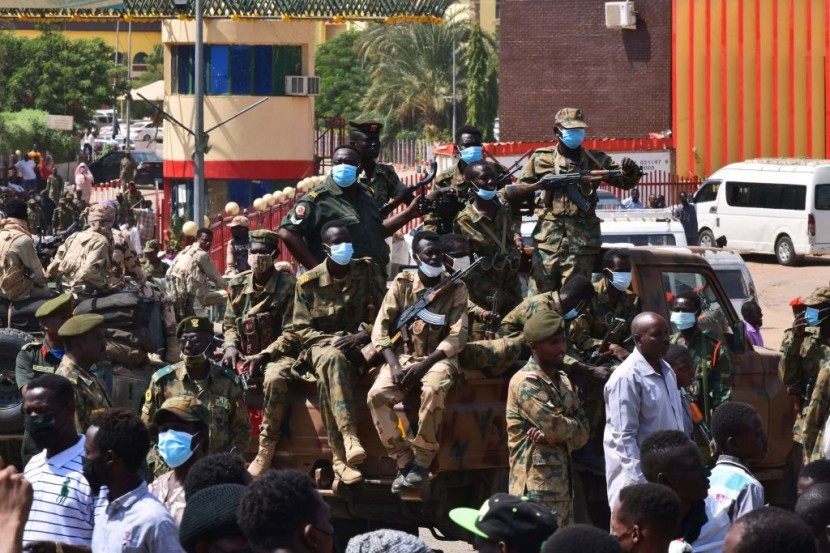
Gunfire and heavy artillery fire have persisted in parts of Sudan's capital, Khartoum, despite the extension of a ceasefire between the country's two top generals, whose battle for power has killed hundreds and sent thousands fleeing for their lives. The civilian death toll has jumped to 411 people, according to the Sudan Doctors' Syndicate, which monitors casualties. The fighting has wounded another 2,023 civilians so far.
The city of Genena, the provincial capital of war-ravaged West Darfur, has also seen intensified violence that has killed 89 people. Fighters have moved into homes and taken over stores and hospitals as they battle in the streets, the syndicate said.
Khartoum, with its population of some five million people, has been transformed into a front line in the grinding conflict between Sudan's military leaders. Despite the extension of the ceasefire, the situation remains tense and volatile.
The British government has evacuated its nationals from the country, with the final flight set to leave at 6pm UK time. The deadline for British nationals to reach the evacuation airfield in Sudan has passed, as the government prepares to cease flights out of the war-torn region within hours. Deputy Prime Minister Oliver Dowden chaired a Cobra meeting on Saturday afternoon to discuss the security situation in Khartoum in advance of the final flight.
The conflict in Sudan has been ongoing for several years, and the latest surge in violence has once again highlighted the need for a lasting peace agreement. The international community has called for an immediate end to the violence, and the United Nations has condemned the attacks on civilians and called on all parties to respect the ceasefire.
What is the cause of the ongoing conflict?
The recent conflict in Sudan, which has resulted in a rising death toll and the displacement of thousands, is believed to have been sparked by a power struggle between two main factions of the military regime. The Sudanese armed forces are primarily loyal to Gen Abdel Fattah al-Burhan, who is the country's de facto ruler, while the paramilitaries of the Rapid Support Forces (RSF), a collection of militias, follow the former warlord Gen Mohamed Hamdan Dagalo, who is also known as Hemedti.
The roots of this power struggle can be traced back to the years before the 2019 uprising that led to the ousting of the former dictator Omar al-Bashir. During his reign, al-Bashir built up formidable security forces that he deliberately set against one another. When efforts to transition to a democratic civilian-led government faltered after al-Bashir's fall, an eventual showdown appeared inevitable, with diplomats in Khartoum warning in early 2022 that they feared such an outbreak of violence.
In the weeks leading up to the recent clashes, tensions had been rising further. Despite an extension of the ceasefire, heavy gunfire and artillery fire have persisted in Khartoum, resulting in the deaths of 411 civilians and the displacement of thousands. The situation in Sudan remains tense, with many calling for a peaceful resolution to the ongoing conflict.
© 2025 HNGN, All rights reserved. Do not reproduce without permission.








